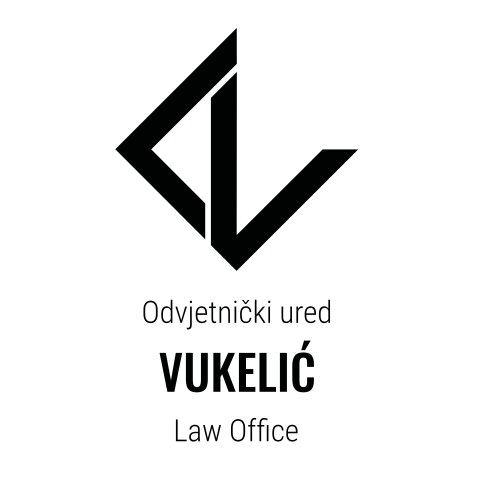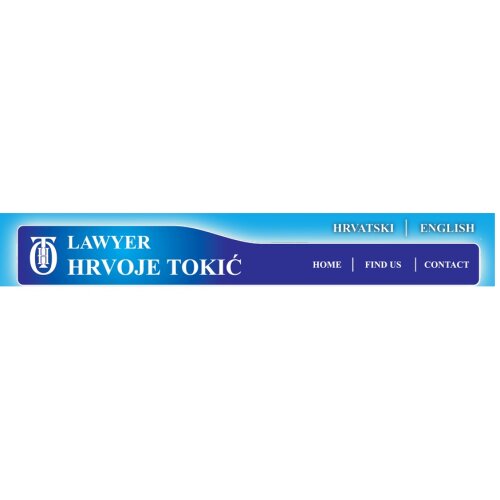Best Real Estate Due Diligence Lawyers in Croatia
Share your needs with us, get contacted by law firms.
Free. Takes 2 min.
Free Guide to Hiring a Real Estate Lawyer
Or refine your search by selecting a city:
List of the best lawyers in Croatia
About Real Estate Due Diligence Law in Croatia
Real estate due diligence in Croatia is a critical process that involves a comprehensive investigation of legal, financial, and physical aspects of a property before finalizing a transaction. This process is crucial for identifying any potential issues or liabilities that may affect the property's value or usability. Due diligence ensures transparency and provides buyers with the confidence needed to make informed decisions. In Croatia, this typically involves reviewing ownership records, zoning laws, building permits, environmental reports, and any existing liens or encumbrances on the property.
Why You May Need a Lawyer
Engaging a lawyer for real estate due diligence can provide invaluable support in several situations, including but not limited to:
- Navigating complex local laws and regulations that may impact property ownership or usage rights.
- Conducting thorough checks on title deeds to confirm clear ownership and uncover any potential disputes or claims.
- Assisting with negotiations and drafting of contracts to ensure terms are legally sound and protect the buyer's interests.
- Identifying hidden fees, taxes, or encumbrances that could affect the financial outcome of the transaction.
- Advising on zoning requirements and potential restrictions that could impact property development or renovation plans.
Local Laws Overview
Croatia's real estate landscape is governed by a mix of national and local laws. Key aspects include:
- The Land Registry Act, which provides for the registration of real estate and any encumbrances, ensuring the legal status of ownership is clear.
- The Building Act, outlining regulations related to construction permits, compliance with safety standards, and quality control.
- Zoning laws that determine land use and development parameters, often varying between different municipalities.
- Environmental protection laws that may influence property due to protected zones or required impact assessments.
- The Cadaster system, which maintains records on land parcels and property boundaries, often used alongside the Land Registry.
Frequently Asked Questions
What is the first step in conducting real estate due diligence in Croatia?
The first step usually involves verifying the property ownership details in the Land Registry to ensure there are no disputes or encumbrances on the title.
Are foreign nationals allowed to buy property in Croatia?
Yes, foreign nationals can purchase property in Croatia with some restrictions based on reciprocity agreements. Certain restrictions apply to agricultural lands and protected areas.
How long does the due diligence process typically take?
The due diligence process can vary depending on the complexity of the property and the transaction but typically takes between two weeks and a month.
What are some common issues uncovered during due diligence?
Common issues may include boundary disputes, undisclosed liens, zoning non-compliance, illegal structures, or environmental contamination.
Who pays for the due diligence process?
Usually, the buyer is responsible for the costs associated with due diligence, though this can sometimes be negotiated in the contract terms.
Do I need a Croatian bank account to purchase real estate?
Yes, both local and foreign buyers must have a Croatian bank account for transactions involving real estate purchases.
Can due diligence help in negotiating the property price?
Yes, uncovering issues during due diligence can provide leverage to negotiate a lower price or request repairs or remediation from the seller.
Are there specific environmental assessments required?
Yes, certain properties, especially those near protected areas, may require environmental impact assessments as part of due diligence.
What documents should be reviewed during due diligence?
Key documents include the title deed, land registry extract, building permits, cadastral maps, zoning plans, and tax compliance certificates.
What legal recourse do I have if issues are found after purchase?
If issues are discovered post-purchase, recourse may be available through legal claims against the seller for non-disclosure or misrepresentation.
Additional Resources
For further assistance with real estate due diligence in Croatia, the following resources may be helpful:
- The Ministry of Construction and Physical Planning for regulations and permits.
- The State Geodetic Administration for cadastral records and maps.
- The Land Registry Office for ownership documents and encumbrances.
- The Croatian Chamber of Commerce for business-related inquiries and professional services directories.
- Local municipal offices for zoning and development guidelines.
Next Steps
If you seek legal assistance in real estate due diligence, consider the following steps:
- Conduct preliminary research to understand the property and its location-specific requirements.
- Engage a reputable real estate lawyer with experience in Croatian property law. Local referrals or recommendations from the Croatian Bar Association may be beneficial.
- Prepare all relevant documents and information for the lawyer to facilitate a comprehensive due diligence process.
- Discuss potential risks and strategies for mitigation with your lawyer prior to committing to the transaction.
- Ensure clear communication and documentation through every stage of the buying process to avoid any future complications.
Lawzana helps you find the best lawyers and law firms in Croatia through a curated and pre-screened list of qualified legal professionals. Our platform offers rankings and detailed profiles of attorneys and law firms, allowing you to compare based on practice areas, including Real Estate Due Diligence, experience, and client feedback.
Each profile includes a description of the firm's areas of practice, client reviews, team members and partners, year of establishment, spoken languages, office locations, contact information, social media presence, and any published articles or resources. Most firms on our platform speak English and are experienced in both local and international legal matters.
Get a quote from top-rated law firms in Croatia — quickly, securely, and without unnecessary hassle.
Disclaimer:
The information provided on this page is for general informational purposes only and does not constitute legal advice. While we strive to ensure the accuracy and relevance of the content, legal information may change over time, and interpretations of the law can vary. You should always consult with a qualified legal professional for advice specific to your situation.
We disclaim all liability for actions taken or not taken based on the content of this page. If you believe any information is incorrect or outdated, please contact us, and we will review and update it where appropriate.
Browse real estate due diligence law firms by city in Croatia
Refine your search by selecting a city.

















